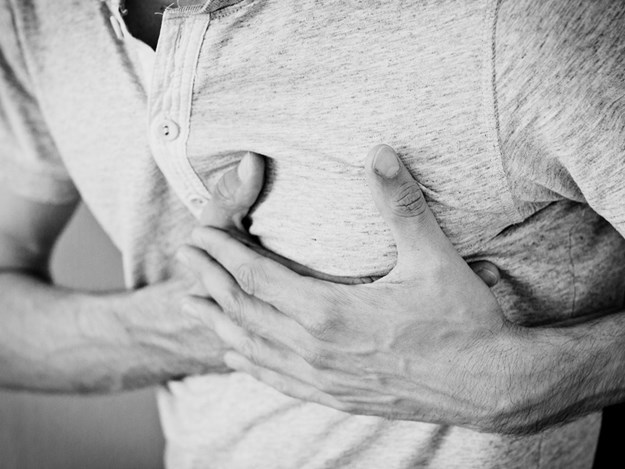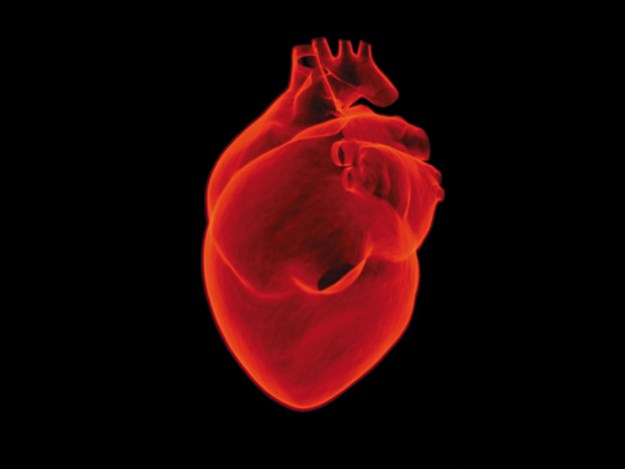Comment: Are you looking after your heart?
Heart health is a major concern for truck drivers and being diagnosed with heart disease can be quite worrying, but there are a number of treatments that can lower the risk of a heart attack

The average age of people in the trucking industry is in the mid-50s, with a significant number aged over 65 years old. Stress, fatigue, lack of exercise, and poor diet is common in the industry.
This combined with age-related health issues means that it’s no surprise to see people suffering from a range of health-related issues, including high blood pressure, stroke, heart disease, stress disorders, diabetes, sleep apnoea, liver disease, kidney failure, and various forms of cancer.
The Ministry of Health reports that heart-related health issues account for one in three of all deaths annually in New Zealand. To put that in context, there are more deaths per year of heart disease than the total New Zealand road toll for the last 10 years.
Many of these deaths are premature and preventable. Obesity is a risk factor for a number of diseases, including heart disease, stroke, diabetes, high blood pressure, osteoarthritis, and some cancers. Approximately one in every two New Zealanders is obese or overweight.
One in 23 adults have been diagnosed with heart disease—that’s 170,000 adults. One in five New Zealanders older than 15 smoke. It’s estimated that 5000 people in New Zealand die prematurely from smoking each year—about 12 people per day. Sadly, in the trucking industry, the percentages are even worse.
There are three kinds of cardiovascular disease: heart disease, stroke disease, and blood vessel disease. They can affect the heart in several ways, but the main problem is that one way or another, they can disrupt the vital pumping action of the heart. Heart disease occurs when the hearts arteries, which deliver oxygen to the heart muscle, become narrowed or blocked because of the build-up of fat/cholesterol within the artery wall.
Symptoms of a heart attack vary but include the following:
- Heaviness, tightness, pressure, discomfort, or pain in any of these areas: chest, shoulder, jaw, arm, neck, or back.
- You may also experience sweating, shortness of breath, nausea, or fatigue.
- There are many risk factors for heart disease.

Some of these can be controlled through lifestyle changes and or medication, while others cannot. Controllable risk factors include:
High blood pressure: One in five adult New Zealanders suffer from high blood pressure or are prescribed medication to lower blood pressure. Not all people notice the symptoms, which may include severe headaches, pounding in your chest, neck, or ears, shortness of breath, irregular heartbeat, bleeding nose, fatigue, confusion, changes to your eyesight, swelling up of your body (fluid build-up), or blood in the urine.
Smoking: The risk of heart disease is two/three times higher for smokers than non-smokers. Seek help to quit smoking from your doctor or chemist or contact Quitline 0800 778 778.
High blood cholesterol: The Heart Foundation recommends a total blood cholesterol level of less than 4.0mmol/l. The average blood cholesterol level is 5.7mmol/l. A 1.0mmol/l reduction in bad cholesterol levels can reduce the risk of heart disease and stroke by up to 35%.
Diabetes: Diabetes seriously increases your risk of heart disease or stroke. If blood sugar levels are not controlled, the risk is significantly greater. More than 200,000 people have been diagnosed with diabetes; up to 100,000 people may not even realise that they have it. Symptoms include excessive urination, thirst, irritability, numbness, tingling in the feet, fatigue, and nausea.
Physical inactivity: Almost half of adult New Zealanders are not physically active for more than 30 minutes per day. Exercise can help control blood cholesterol, diabetes, and obesity and can help lower blood pressure for some people.
Obesity: About one million adults are now obese in New Zealand. Obesity raises the risk of heart disease and stroke even if you have no other symptoms.
Poor diet: One in three adults does not eat two or more servings of vegetables per day. Two in five adults do not eat two or more servings of fruit per day.
Alcohol: High alcohol consumption can lead to high blood pressure, heart disease, and stroke. It can also lead to other diseases and can contribute to weight gain. Too much alcohol can also cause hypoglycaemia (low blood sugar levels).
Stress: High stress levels can also contribute to high blood pressure, heart disease and stroke.
Some of the non-controllable risk factors for cardiovascular disease include age, ethnicity, family history, and medical history. Being diagnosed with heart disease can be quite worrying, but there are a number of treatments that can reduce your risk of suffering a heart attack. These include medication, coronary angioplasty (stents), or coronary artery bypass surgery. With successful treatment, the risk of heart attack can be reduced or even eliminated.
Medications
Some common medications include:
- Beta blockers—used to slow the heart rate and reduce blood pressure
- Nitrates—helps widen the arteries for improved blood flow
- Calcium blockers/calcium antagonists—used to slow the entry of calcium into the heart and blood vessel walls
- Ace inhibitors—helps prevent the constriction of peripheral blood vessels
- Aspirin—helps prevent the formation of blood clots
- Cholesterol lowering medication—used to reduce plaque build-up in the arteries
Coronary angioplasty and stenting
- Coronary angioplasty—this involves inserting a balloon-tipped catheter into a narrowed artery. It’s then inflated, compressing the plaque and slightly stretching the artery wall to increase blood flow.
- Stenting—a stent is a small mesh tube placed in the narrowed coronary artery during a coronary angioplasty procedure to help keep the artery open.
Coronary artery bypass surgery
This involves using a blood vessel from elsewhere in your body and grafting in place of a blocked artery to restore blood flow to your heart (Aorta). This is a major surgery that involves cutting open your breastbone. Recovery normally takes eight weeks.
Getting help
If you think that you or someone you know may have some or all of the symptoms of heart disease, then getting help early is important. Don’t leave it for another day. Make an appointment with your doctor or you can contact the Ministry of Health 24/7 Healthline service on 0800 611 116 for free advice from a trained registered nurse.
Further information on heart disease is also available from the National Heart Foundation. Phone 09 571 9191, email info@nhf.org.nz, visit heartfoundation.org.nz or one of their
19 local branches around the country.
References:
The Heart Foundation of New Zealand
Southern Cross Hospital
Find new and used trucks for sale in NZ
Keep up to date in the industry by signing up to Deals on Wheels' free newsletter or liking us on Facebook.





.jpg)


.jpg)


.jpg)
-(1).jpg)
.jpg)
.jpg)
.gif)

